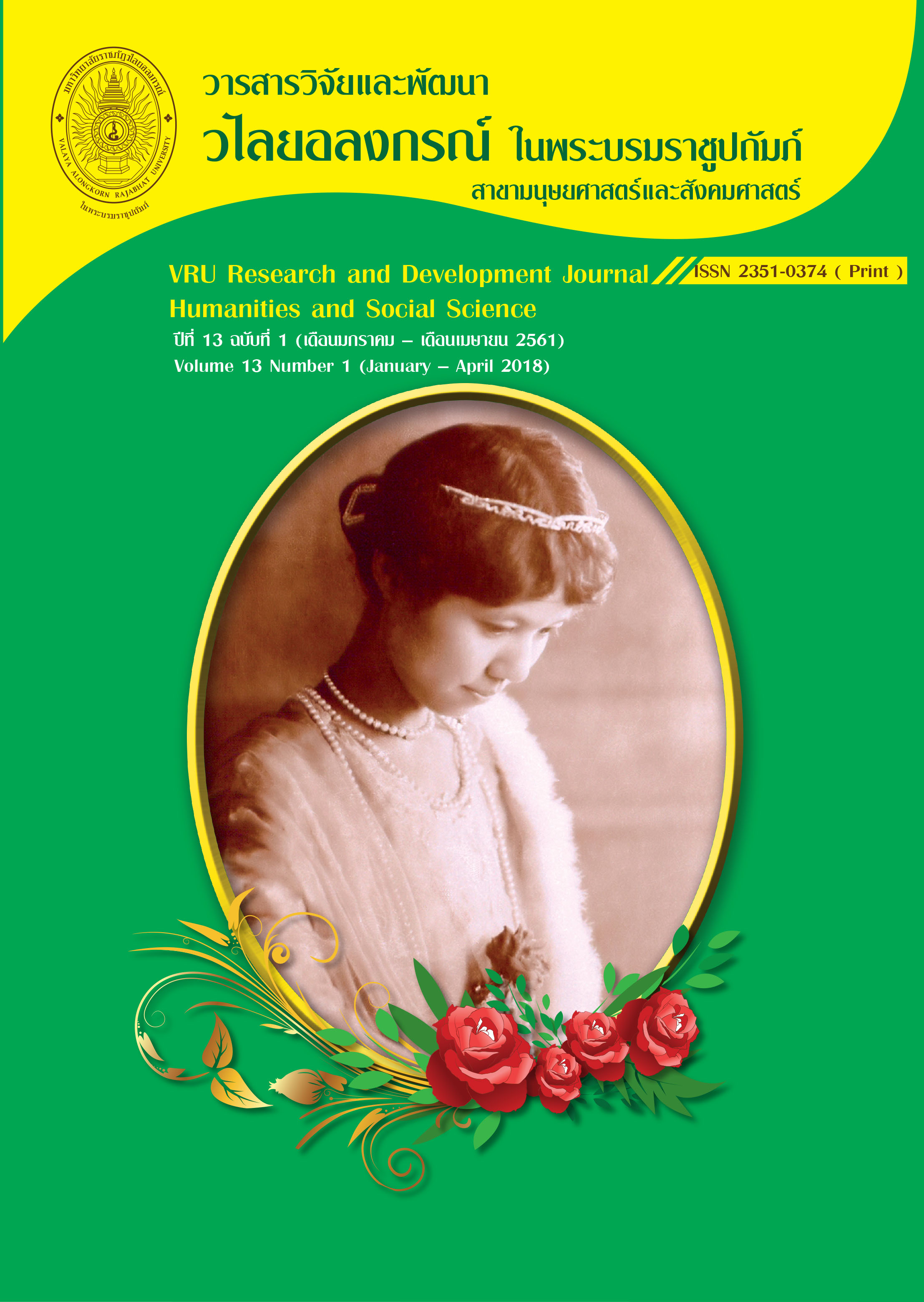ผลกระทบจากทัศนคติสีเขียว บรรทัดฐานอัตนัย การรับรู้การควบคุมพฤติกรรม และการรับรู้คุณค่า ต่อความตั้งใจกระทำ และความตั้งใจที่จะจ่ายเพิ่มสำหรับโรงแรมสีเขียวของไทย
Main Article Content
Abstract
บทความนี้มีวัตถุประสงค์เพื่อศึกษาทัศนคติของผู้บริโภคชาวไทยต่อโรงแรมสีเขียว และทัศนคติต่อความตั้งใจกระทำประกอบด้วย เจตคติต่อการเข้าเยี่ยมชม (VI), เจตนารมณ์ทางวาจา (WOMI) และความเต็มใจที่จะจ่ายเงินเพิ่ม (WPM) เพื่อให้การศึกษาครั้งนี้สมบูรณ์ ผู้วิจัยจึงใช้การศึกษาทั้งจากการวิจัยเชิงปริมาณและการวิจัยเชิงคุณภาพ ใช้กลุ่มตัวอย่างจากลูกค้าชาวไทยที่มีอายุตั้งแต่ 18 ปีขึ้นไป ซึ่งเคยพักแรมในโรงแรมสีเขียวในประเทศไทย จำนวนแบบสอบถาม 385 ชุดจากทั่วประเทศ และทำการสัมภาษณ์กลุ่มตัวอย่าง จำนวน 5 คน การวิเคราะห์ข้อมูลเชิงปริมาณใช้แบบจำลองสมการโครงสร้าง (Structured Equation Model: SEM) ในขณะที่ข้อมูลจากการสัมภาษณ์ใช้การวิเคราะห์เนื้อหาเชิงคุณภาพ (Qualitative content analysis: QCA)
ผลจากแบบสอบถามพบว่าเจตคติต่อสีเขียวบรรทัดฐานอัตนัยและการรับรู้ค่าทั้งหมดมีผลดีต่อพฤติกรรมความตั้งใจของโรงแรมสีเขียว ในทำนองเดียวกันบรรทัดฐานอัตนัยมีผลเชิงบวกต่อความตั้งใจที่จะจ่ายเงินเพิ่มมากขึ้นสำหรับโรงแรมสีเขียว อย่างไรก็ตามทัศนคติและคุณค่าทางสีเขียวไม่มีผลต่อความตั้งใจที่จะจ่ายเงินสำหรับโรงแรมสีเขียวมากนัก น่าแปลกใจที่การรับรู้การควบคุมพฤติกรรมมีผลกระทบเชิงลบอย่างมากต่อความตั้งใจในการกระทำต่อโรงแรมสีเขียวและความเต็มใจที่จะจ่ายเงินมากขึ้นสำหรับโรงแรมสีเขียว นอกจากนี้ผลจากการสัมภาษณ์ยังสนับสนุนผลการวิจัยเชิงปริมาณ แม้ว่าผู้บริโภคจะยินดีพักที่โรงแรมสีเขียว แต่ผลกระทบต่อสิ่งแวดล้อมก็ไม่ใช่ปัจจัยสำคัญในการเลือกโรงแรม ดังนั้นพวกเขาไม่เต็มใจที่จะจ่ายมากขึ้นสำหรับโรงแรมสีเขียว
This paper aimed to examine Thai consumers’ attitudes towards green hotels and the effect of these attitudes on their behavioral intention including visit intentions (VI), word of mouth intention (WOMI), and willingness to pay more (WPM). To complete this study, a quantitatively led mixed methods research was employed. Target respondents were Thai customers aged 18 or over having stayed in green hotels in Thailand. A questionnaire was collected from 385 customers nationwide and 5 of them were then interviewed. The quantitative data were analyzed by using structured equation model (SEM) while the data from the interview were analyzed by using qualitative content analysis (QCA). The result from the questionnaire showed that green attitudes, subjective norms, and perceived value all had a positive effect on behavioral intention towards green hotels. Similarly, subjective norms did have a positive effect on willingness to pay more for green hotels. However, green attitudes and perceived value did not have any significant effect on willingness to pay more for green hotels. Surprisingly, perceived behavioral control had a significantly negative effect on both behavioral intention towards green hotels and willingness to pay more for green hotels. Moreover, the result from the interview supported the quantitative findings. Although consumers were willing to stay in green hotels, environmental impact was not a major factor in their choice of hotel. Hence, they were not willing to pay more for green hotels.
Article Details
ลิขสิทธิ์บทความวิจัยที่ได้รับการตีพิมพ์เผยแพร่ในวารสารมนุษยศาสตร์และสังคมศาสตร์ วไลยอลงกรณ์ ในพระบรมราชูปถัมภ์ ถือเป็นกรรมสิทธิ์ของคณะมนุษยศาสตร์และสังคมศาสตร์ มหาวิทยาลัยราชภัฏวไลยอลงกรณ์ ในพระบรมราชูปถัมภ์ ห้ามนำข้อความทั้งหมดหรือบางส่วนไปพิมพ์ซ้ำ เว้นแต่จะได้รับอนุญาตจากมหาวิทยาลัยเป็นลายลักษณ์อักษร
ความรับผิดชอบ เนื้อหาต้นฉบับที่ปรากฏในวารสารมนุษยศาสตร์และสังคมศาสตร์ วไลยอลงกรณ์ ในพระบรมราชูปถัมภ์ เป็นความรับผิดชอบของผู้นิพนธ์บทความหรือผู้เขียนเอง ทั้งนี้ไม่รวมความผิดพลาดอันเกิดจากเทคนิคการพิมพ์

